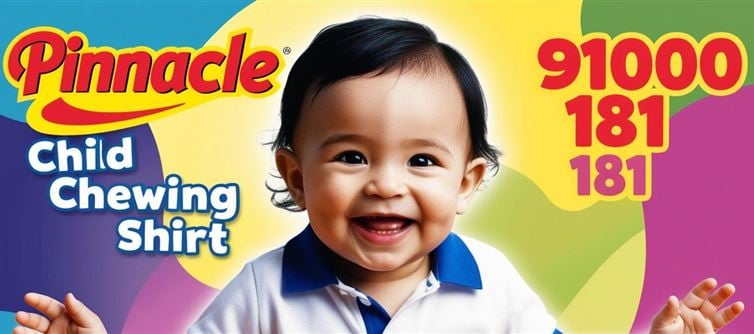
📍 Location: hyderabad (Kukatpally)
🧠 Service: Oral Sensory-Seeking / Autism / Occupational Therapy
📞 Call to Action: AbilityScore©® Sensory Screening + TherapeuticAI©® Plan
“By Noon, Her Shirt Collar Was Soaked.
By Evening, Her Pencil Was Bitten Through.
And All Day Long,
She Bit Her Fingers When No One Was Watching.”
Meghana, 4.5 years old, chewed everything.
- Shirt sleeves.
- Plastic bottle caps.
- Crayons.
- Her own hands.
“We told her to stop.
Gave her something else.
Scolded.
Begged.
But she kept chewing.”
Until they realized —
this wasn’t a phase.
It was survival.
🧠 Why Chewing Isn’t Just A Habit — It’s A Neurological Need
At Pinnacle® hyderabad (Kukatpally), pediatric OTs explain:
“In children with autism or sensory processing disorders, chewing is often a form of oral sensory-seeking behavior.
The mouth is one of the body’s most direct calming systems.
Chewing helps these children stay grounded — when the world feels too much.”
Clinical signs:
- Constant chewing on shirt, toys, pencils, sleeves
- Biting hands, fingers, or clothing when anxious or overwhelmed
- Chewing increases during transitions or sensory overload
- No awareness of when/why they chew
- Resistant to stopping unless replaced with regulation strategy
“They’re not being naughty.
They’re using their mouths to regulate a storm they can’t explain.”
📞 The Day The Pencil Broke — And They Saw What Was Really Happening
One day, during drawing time:
- Meghana bit her pencil so hard it snapped.
- She didn’t flinch.
- Didn’t cry.
- Just picked it up and kept chewing the pieces.
That night, her mother saw teeth marks on her fingers.
“We thought she had outgrown this.
Instead, she had just gotten better at hiding it.”
They called 9100 181 181.
The counselor said:
“She’s not breaking pencils.
She’s trying to hold herself together.
Let’s help her — without shame, without delay.”
They booked a free AbilityScore©® Sensory Screening.
📊 Meghana’s AbilityScore©® Oral Sensory Profile
- Oral Sensory Seeking Intensity: 🔴 red (440/1000)
- Substitution Behavior (Switching items): 🔴 Red
- Self-Regulation Without Chewing: 🔴 Red
- Emotional Triggers For Chewing: 🟡 Yellow
- Social Awareness Of Behavior: 🔴 Red
She wasn’t unaware.
She was trying to survive a sensory world — using her mouth as her only tool.
🤖 How TherapeuticAI©® Helped Her Chew Less — And Regulate More
Her therapy didn’t ban chewing.
It built safe, structured ways to regulate without harming.
Plan included:
- Chewy tubes and safe silicone necklaces for redirection
- Oral motor activities: blowing, sucking, straw play
- Sensory diet with scheduled deep-pressure input
- Emotional labeling before chewing began (“I feel __”)
- School and home coordination: chew zones, chew times
By week 5:
- Meghana used a chew necklace 4x daily
- Stopped chewing shirt sleeves altogether
- Began using words: “I need chew,” “I’m nervous”
- Smiled while coloring — without biting her crayon
“She didn’t stop chewing.
She learned how to chew without hurting.
And eventually — she learned how to calm without chewing at all.”
💬 What Her parents Say Now
“We thought we needed to break the habit.
But we learned — we needed to decode the signal.
And Pinnacle® taught us how to listen to what her mouth was saying —
when her voice couldn’t.”
🌍 This Autism Awareness Month — watch The Chewing
If your child:
✅ Chews on clothes, pencils, fingers regularly
✅ Doesn’t stop even when corrected
✅ Chews more when anxious, tired, or transitioning
✅ Refuses chewy foods but chews non-food objects
…it’s time to screen their sensory profile — and build real regulation.
📞 Book Your Child’s Free Sensory Screening in hyderabad (Kukatpally)
📞 Call the Pinnacle® National Autism Helpline: 9100 181 181
🌐 www.Pinnacleblooms.org
📍 kukatpally | miyapur | Nizampet | Balanagar
✅ Free AbilityScore©® Oral Sensory Report
✅ TherapeuticAI©® Chewing Regulation Plan
✅ telugu + english Therapists
✅ Parent Chewing Substitution Toolkit
⚠️ Disclaimer
This article is for awareness only. For diagnosis or therapy, call Pinnacle® at 9100 181 181 or consult your pediatric specialist.




 click and follow Indiaherald WhatsApp channel
click and follow Indiaherald WhatsApp channel